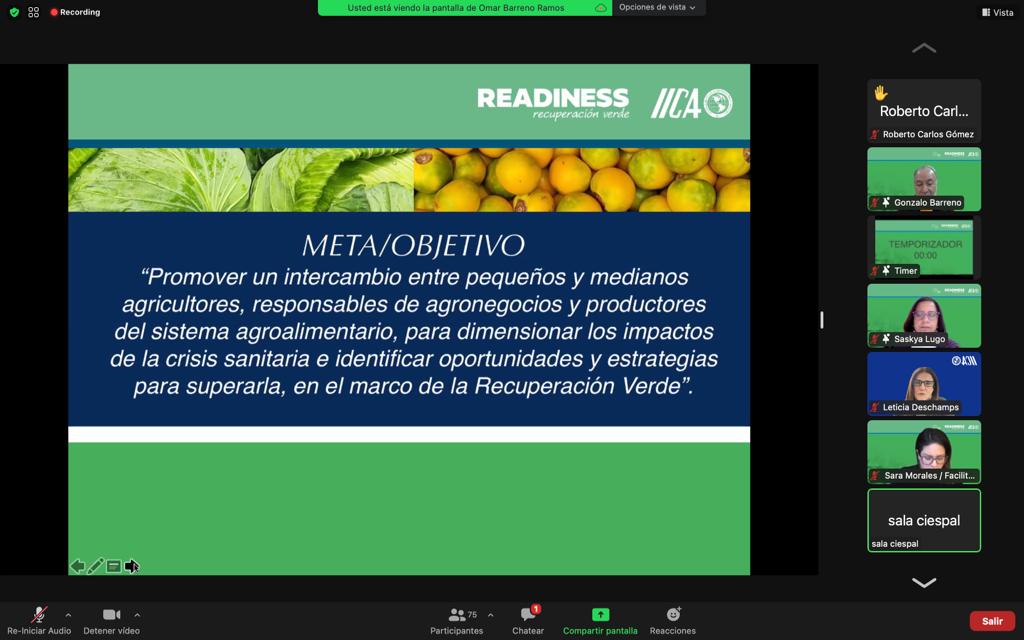Mexican producers and institutions took part in a workshop where they identified strategies for improving agri-food systems underpinned by the Green Recovery concept.

Mexico City, 4 March 2022 (IICA). In Mexico, agricultural producers and organizations, community leaders and public and private institutions shared their experiences regarding the impact of the health crisis and identified opportunities and strategies for reversing it and improving climate change adaptation in agriculture, as part of the Readiness Recuperación Verde project being implemented by the Inter-American Institute for Cooperation on Agriculture (IICA).
The inter-American agency specializing in agriculture and rural issues organized a virtual workshop that enabled 86 individuals from 11 Mexican states to discuss the impact of the COVID-19 pandemic on the agri-food sector, good practices for responding to the crisis, and opportunities for recovery based on resilience.
The aim of the Readiness Recuperación Verde project is to find ways of improving agriculture’s adaptation to climate change and achieving lower emissions, to ensure the economic sustainability of small- and medium-sized producers under post-pandemic conditions.
Ecuador, Bolivia, Brazil, Colombia, Guatemala, Mexico, Peru, and Uruguay are all taking part in the project, with a view to developing post-COVID-19 green recovery strategies in the food, health, and water sectors, supporting the countries’ national and regional efforts to strengthen financial and technological innovations.
This project will help to overcome institutional, technical, and financial obstacles in the agriculture sector, particularly those faced by small- and medium-sized farmers, through public institutions working in the environmental, agricultural, financial, and economic sectors at the national level. The objective is to promote the adoption of advanced technologies that speed up economic recovery and job creation, and improve farmers’ livelihoods, while at the same time reducing CO2 emissions to pre-pandemic levels.
At the workshop, the IICA Representative in Mexico, Diego Montenegro, and the representative of Mexico’s Ministry of Finance and Public Credit (SHCP), Noemí Hernández Rodríguez, highlighted the importance of developing possible strategies for reversing the effects of the pandemic and climate change in agri-food systems.
In analyzing the impact of COVID-19 on agriculture, the participants acknowledged that agri-food systems were affected in different ways in each region and product system. The most serious effects have been falling sales, higher input prices and problems with food distribution.
To mitigate the impact of the crisis, they proposed focusing efforts on making agri-food systems resilient, sustainable, and inclusive, moving from local to regional actions designed to enhance development synergies, foster the modernization of rural areas, achieve balanced food supply strategies at the regional level, and facilitate subregional trade to create opportunities.
The workshop participants also stressed the importance of raising awareness of the need for more efficient natural resource use and the adoption of good practices for mitigation and adaptation that help tackle climate change, while promoting and increasing the participation of women.
They also underscored the need to promote projects targeted at sustainable livestock, soil and water recovery, poverty reduction and skills development, education, health, connectivity, channels for fair trade, and the implementation of regional projects with financial support.
More information:
Leticia Deschamps, Coordinator of IICA Projects in Mexico











